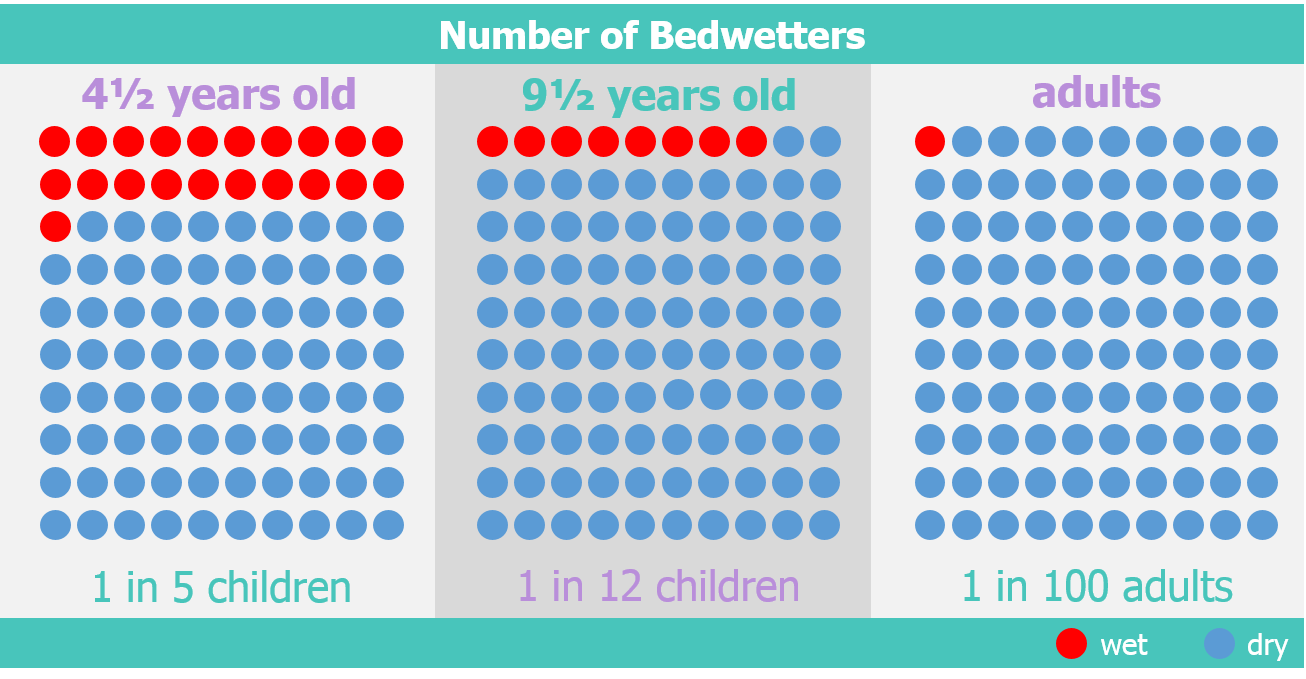How Common Is Bedwetting?
Natural Process
Everyone is born wetting the bed. Whilst many children learn naturally to become dry at night, some children take a bit longer to learn than others.
Bedwetting is very normal for younger children – in fact, around 30% of 4 year olds are thought to wet the bed. It is only considered to be a problem after the age of 5. Treatment is recommended after the age of 5 if bedwetting is troublesome and, in particular, for children that regularly wet the bed beyond the age of 7[1].
Stats & Facts
Although regular bedwetting can seem worrying, both for the child and parent, it is more common than you might think. In the UK, it is estimated that around half a million children aged 5-16 regularly wet the bed[2]. Bedwetting is slightly more common in boys than girls, up until age 12[3].
In general, it is thought that the following number of children wet the bed[4]:
-
21% of children aged 4 ½ years
-
8% of children aged 9 ½ years
-
1% of adults

When will my child become dry at night?
The number of children wetting the bed decreases with increasing age. Each year, approximately 15% of children will naturally learn to become dry. However, many children may continue to wet the bed if no action is taken and it is understandable to want to speed up this process of becoming dry. Frequent bedwetters (those that wet more than 1-2 times a week) can be particularly helped by the use of a bedwetting alarm, which speeds up the natural process of learning to become dry at night.
Conclusion
Bedwetting is common – it is likely that there is at least one child in every child’s primary school class that wets the bed regularly. Still, the social stigma attached to bedwetting means that it is understandable that your child may want to speed up this learning process if they are one of these children. A bedwetting alarm can help children learn to control their bladder, leading to drier, happier night times. 
If you would like to receive top bedwetting tips and advice straight to your inbox, subscribe to our mailing list at the bottom of the page!
References
[1] NICE Guideline CG111 (2010).
[2] ERIC
[3] Su, M.S., Li, A.M., So, H.K., Au, C.T., Ho, C., Wing, Y.K. 2011. Nocturnal enuresis in children: prevalence, correlates, and relationship with obstructive sleep apnea. J Pediatr., 159(2), 238-42.
[4] Butler R.J., Heron J. 2008. The prevalence of infrequent bedwetting and nocturnal enuresis
in childhood: A large British cohort. Scandinavian Journal of Urology and Nephrology 42, 257-64.
